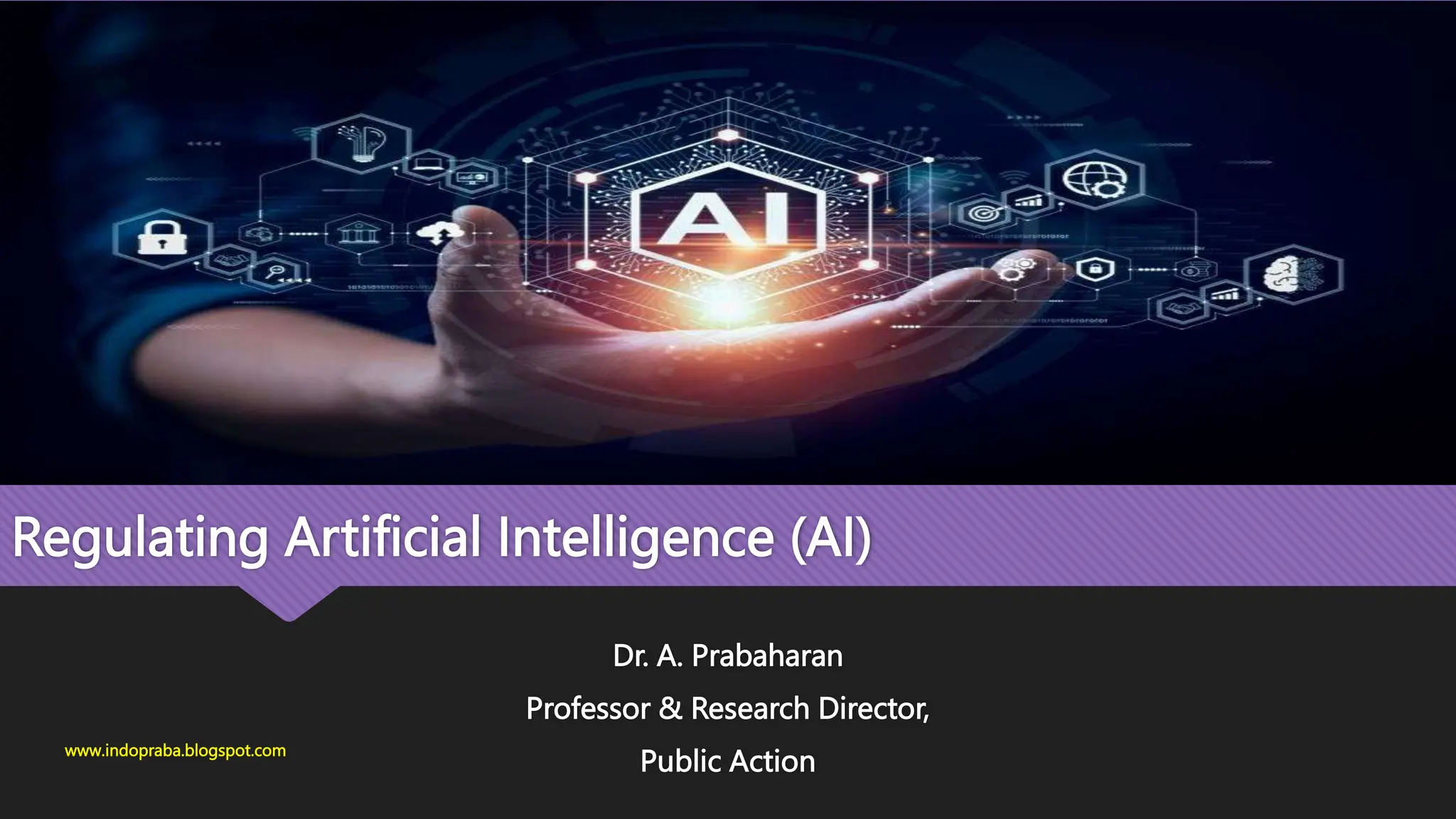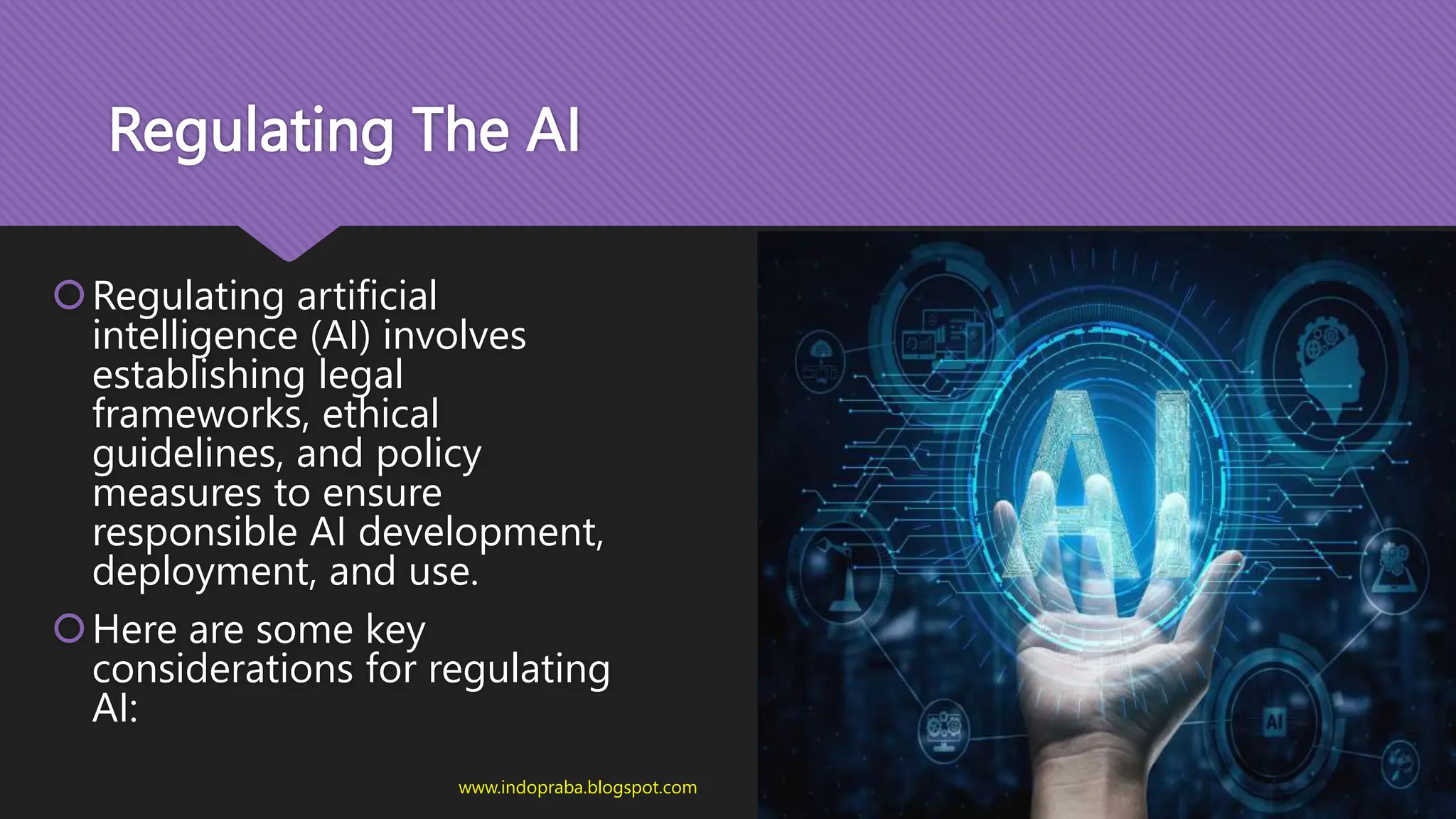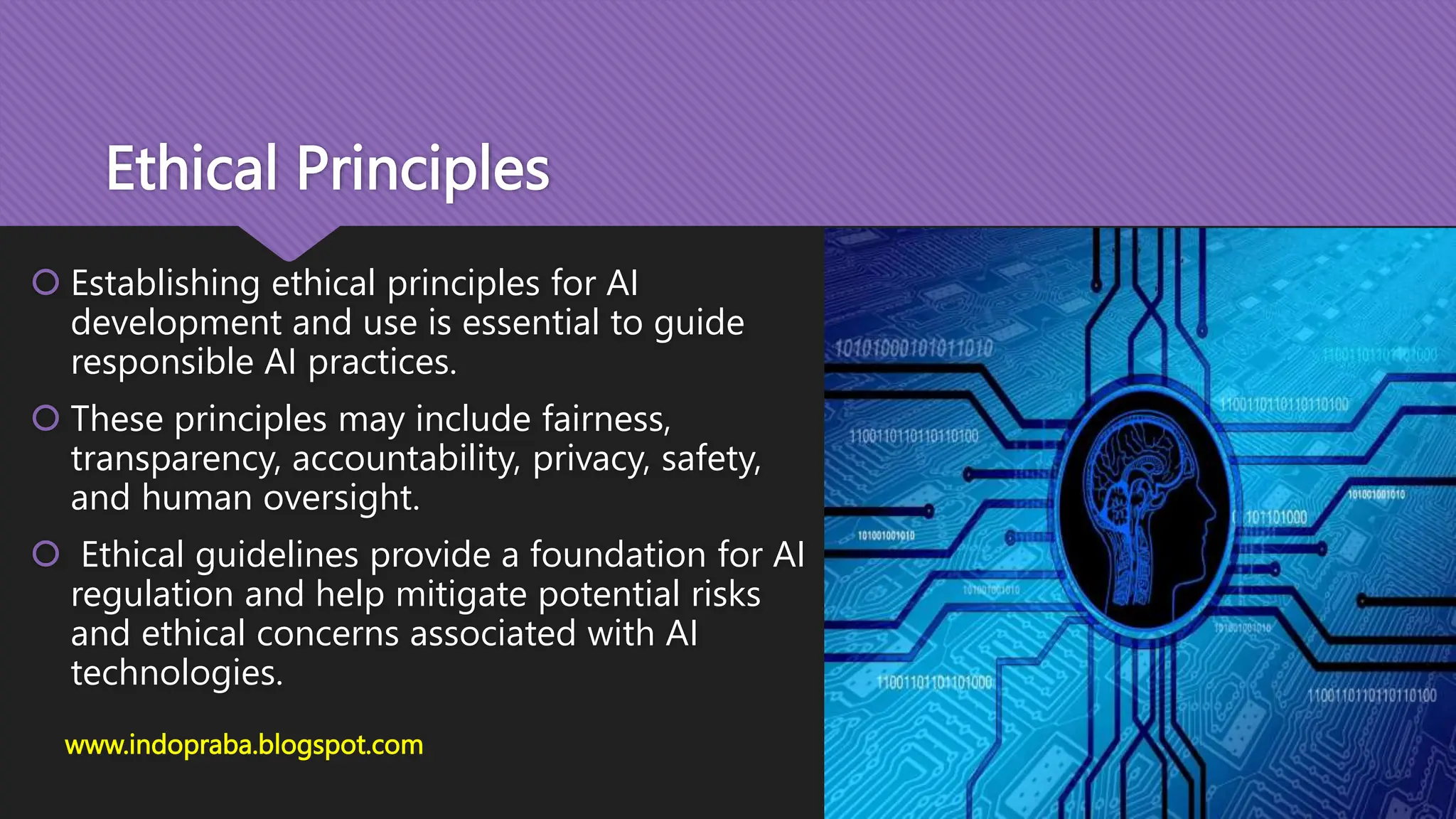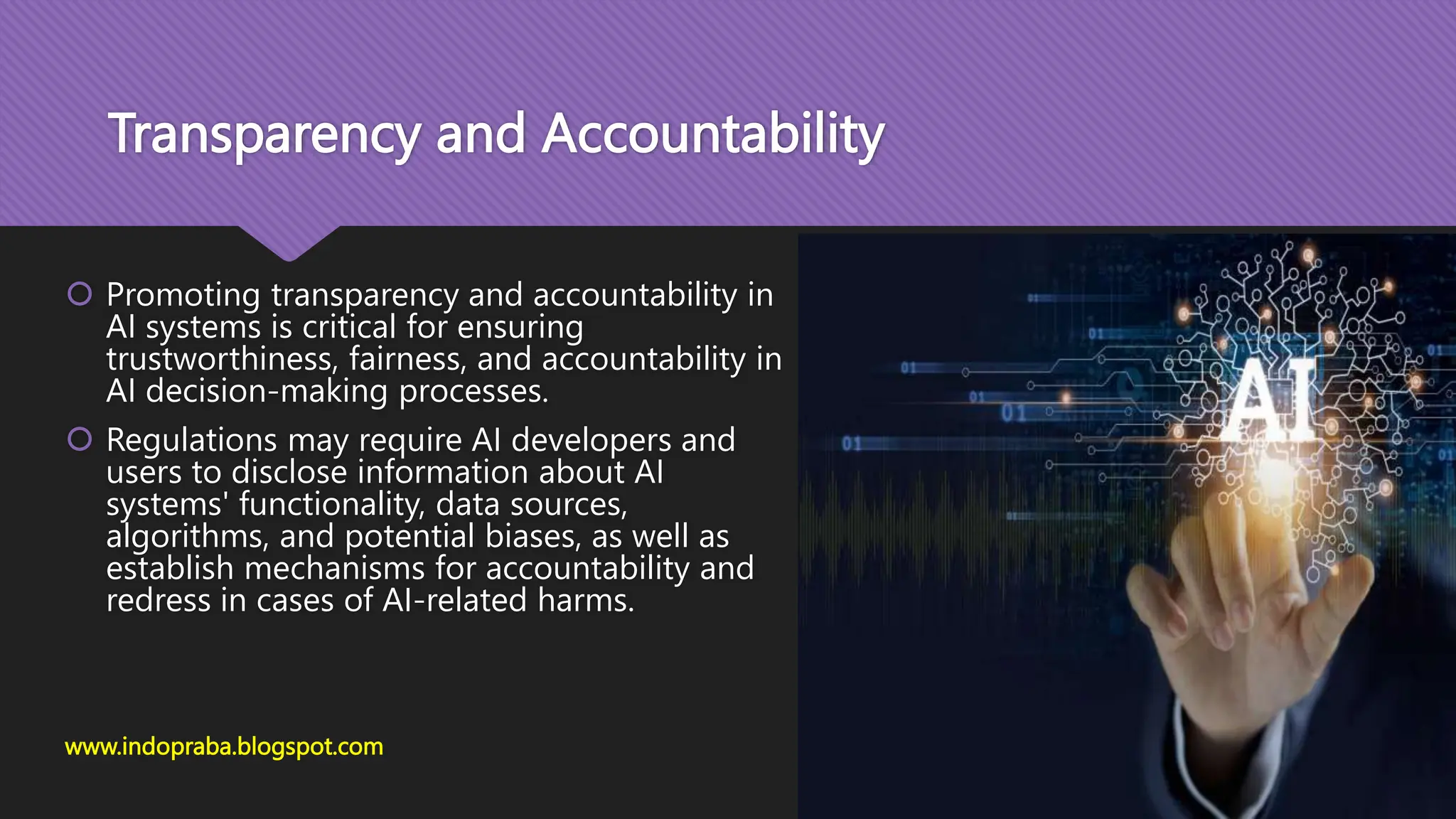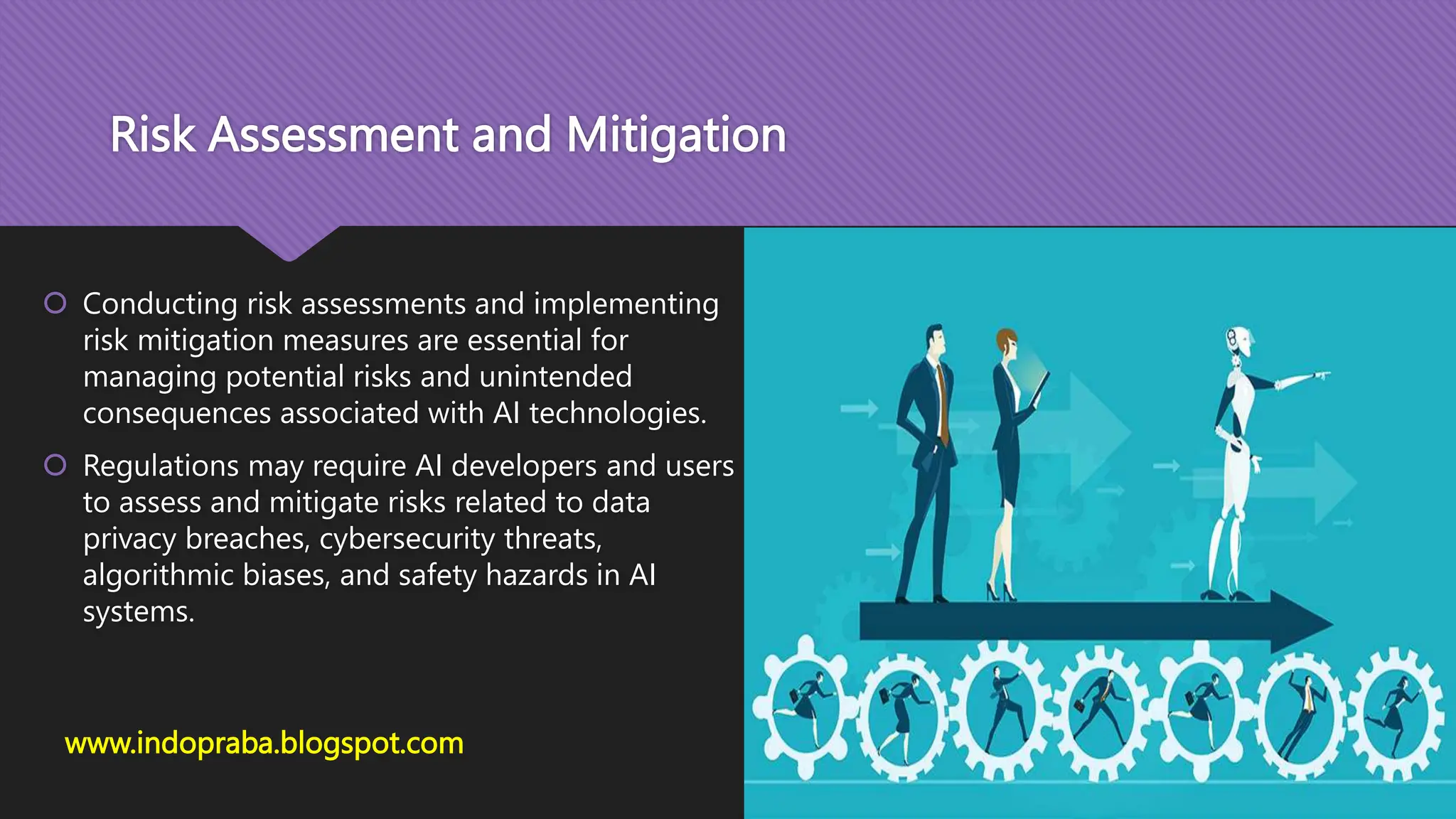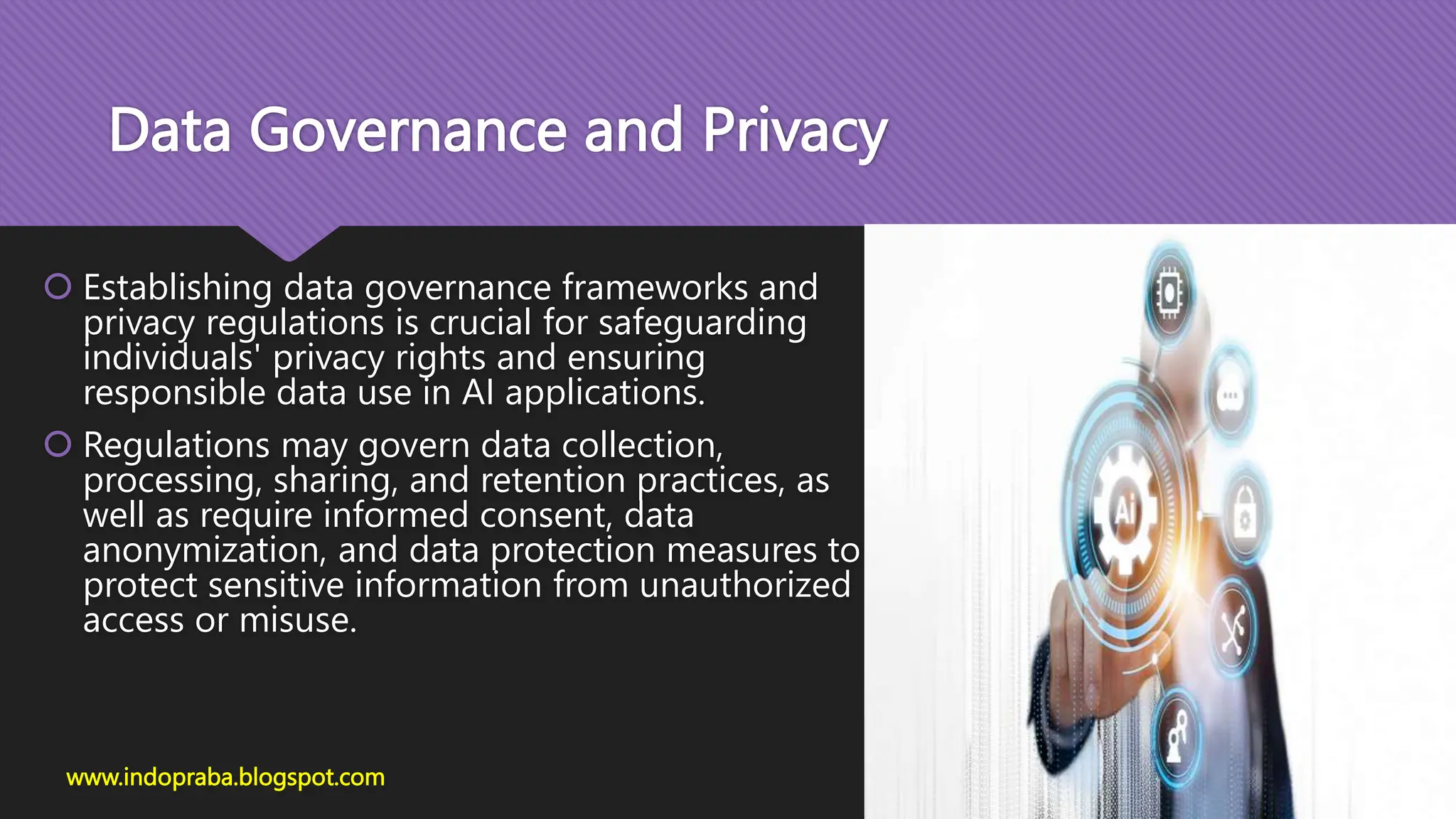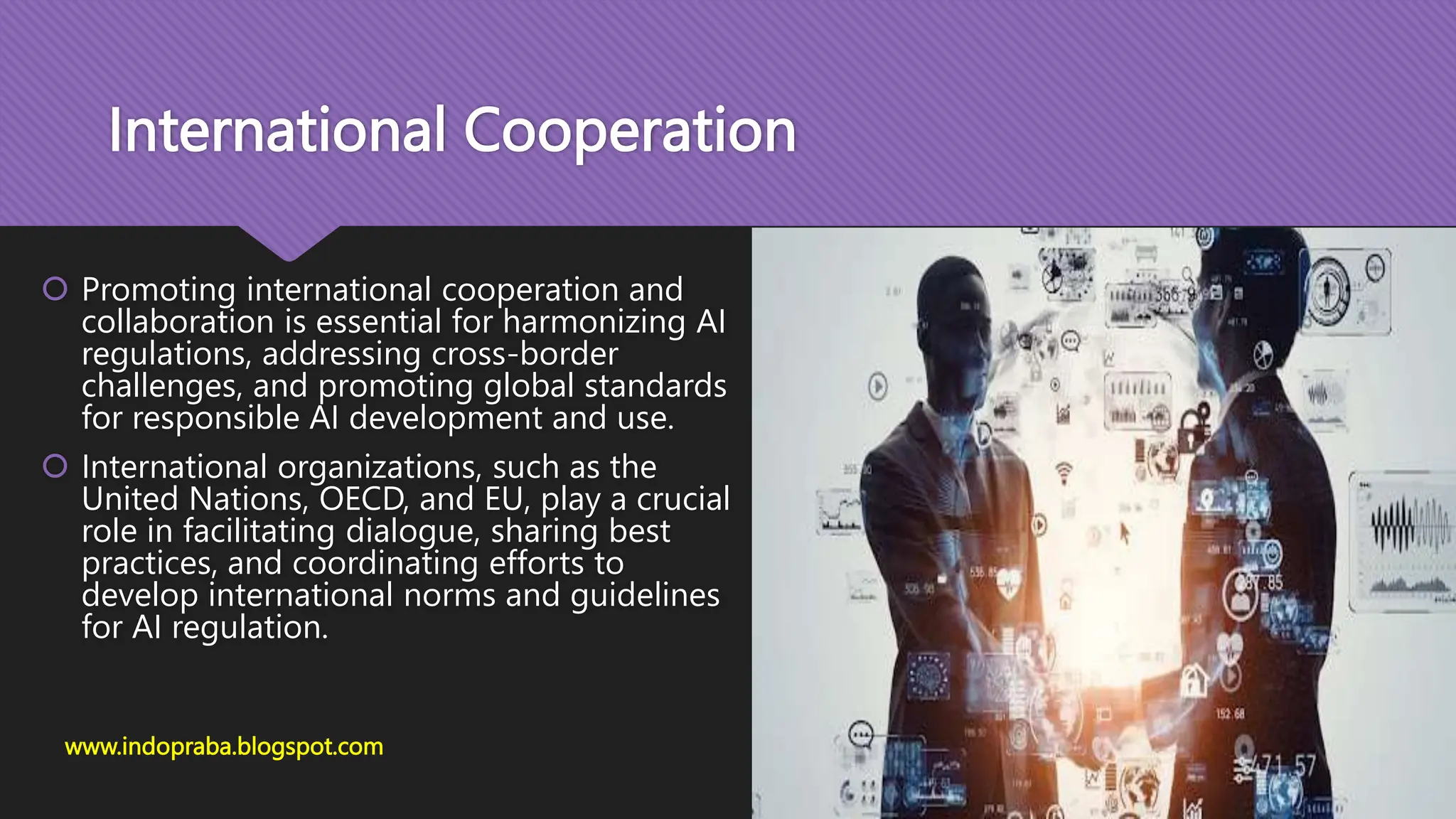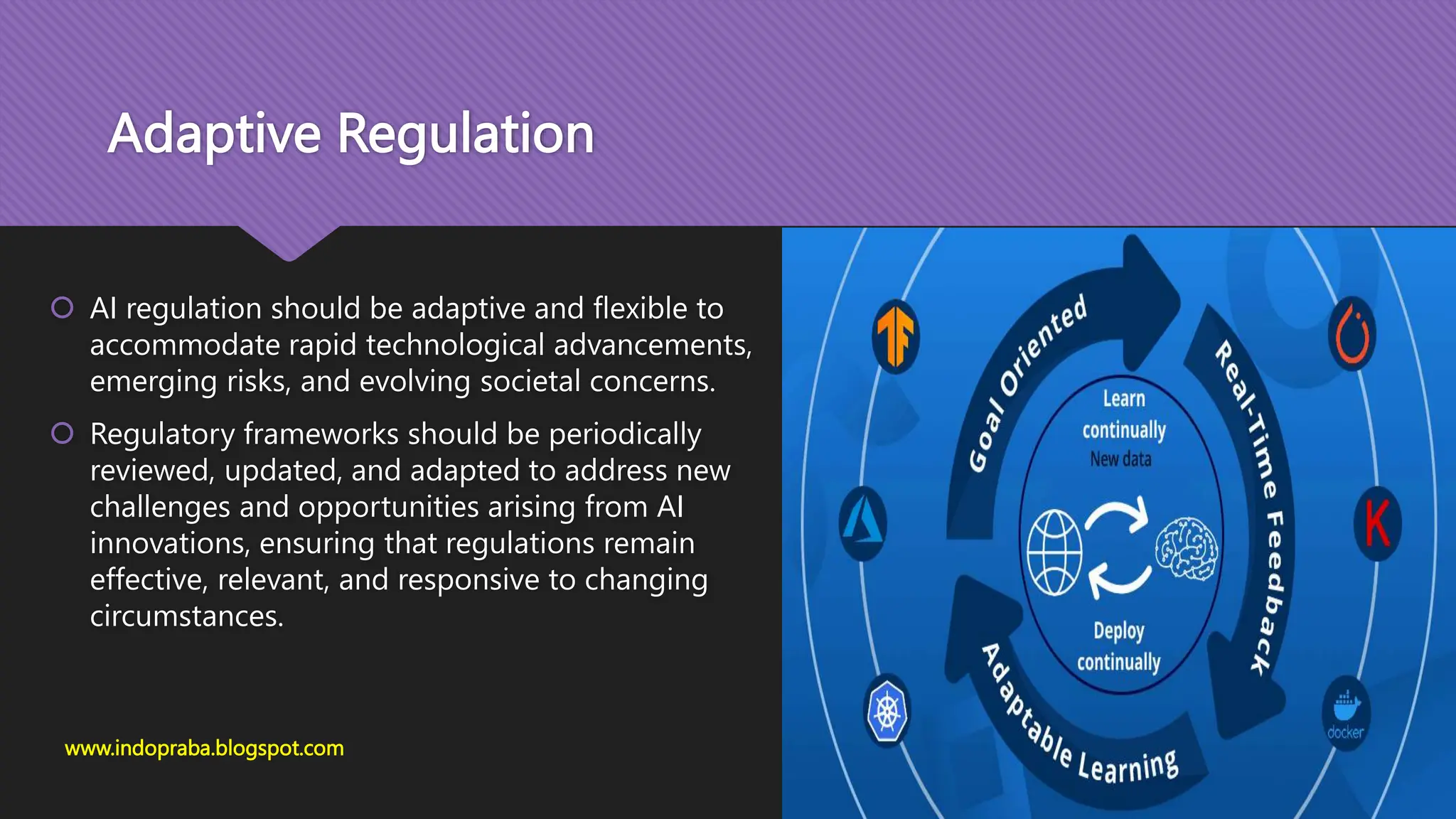Regulating artificial intelligence (AI) involves creating legal frameworks and ethical guidelines to ensure its responsible development and use. Key considerations include ethical principles, legal regulations, transparency, risk management, data governance, interdisciplinary collaboration, and international cooperation. The approach to AI regulation must be adaptive to keep pace with rapid technological advancements and evolving societal concerns.
